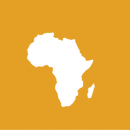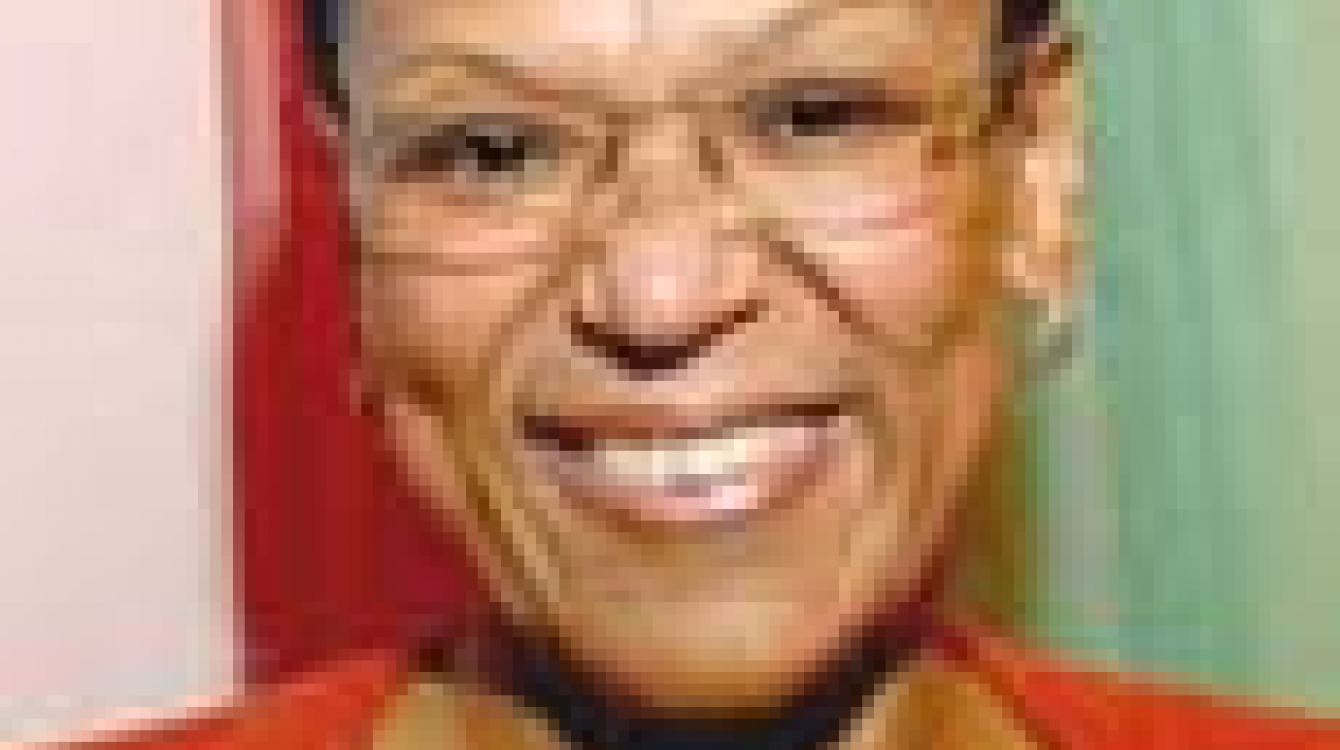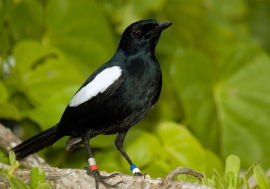Africa Watch
ECONOMIC GROWTHAfrica to grow by 4%In 2003, economic growth in Africa is expected to accelerate to 4 per cent (see graph), from just 2.9 per cent last year. The World Economic Situation and Prospects 2003, released in January by the UN's Department of Economic and Social Affairs (DESA), reports that this projection is based largely on more rapid expansion in several of the continent's largest economies -- such as South Africa and Algeria -- as well as further consolidation of the domestic economic recovery that some countries experienced in 2002. The forecast also hinges on several other factors: no major disruptions in global economic activities as a result of a possible war in Iraq, a modest recovery in commodity prices for some African exports and no new major droughts or armed conflicts.Such external factors also played a role in 2002's disappointing growth, notes the DESA report, down slightly from 3 per cent the year before. This was due mainly to weak external demand for African exports, depressed prices for many primary commodities, severe drought in eastern and southern Africa and economic and political instability in several of Africa's largest economies.Contrary to the trend in recent years, the large economies of North Africa performed less well than those of sub-Saharan Africa. Both Algeria and Libya had slow growth due to oil production cuts resulting from lower quotas in the Organization of Petroleum Exporting Countries. Tourism in Morocco, Tunisia and Egypt still felt the negative effects of the 11 September 2001 terrorist attacks in the US, and North African exports suffered overall from reduced demand in Europe, the region's main trading partner. Overall, growth in North Africa was just 1.9 per cent.Meanwhile, sub-Saharan Africa (excluding Nigeria and South Africa) grew by 3.7 per cent in 2002. This growth, however, was highly uneven, with a number of countries, especially in Southern Africa, suffering from severe drought. Zimbabwe, which has been hit by drought, poor economic management and political conflict, saw its economy shrink by 12 per cent, for the third consecutive year of economic contraction.One hopeful sign for future economic growth, notes DESA, has been progress over the past year in settling several of Africa's more persistent conflicts, including those in Angola and Sierra Leone, and progress in peace negotiations in Burundi, the Democratic Republic of Congo, Somalia and Sudan.ECOSOCGuinea-Bissau slated for post-war supportGuinea-Bissau is expected to become the first country to benefit from a new initiative of the UN Economic and Social Council (ECOSOC) to better coordinate international assistance to countries emerging from conflict. In October, the Council, one of the six main organs of the UN, set up an advisory group to assess the country's humanitarian and economic needs.Guinea-Bissau, one of the poorest countries in West Africa, was ravaged by civil war in 1998 that displaced an estimated one-third of the population. By 1999, peace was restored and elections have since been held. But the government's inability to meet short-term social needs, the slow pace of demobilization and drought continue to threaten stability. Despite its dire financial and economic difficulties, the country currently does not have a programme with the International Monetary Fund, making it extremely hard to secure donor assistance.The ECOSOC advisory group, chaired by South African Ambassador Dumisani Kumalo, will report back to the Council early in 2003. The initiative will seek to encourage donors to resume major assistance to Guinea-Bissau, to prevent a relapse into conflict.ALEXANDRIAA library reborn in AfricaAfter almost 30 years of planning, the Bibliotheca Alexandria, a large, modern world-class library, was inaugurated in October in Alexandria, Egypt. A joint project of the government of Egypt and the UN Educational, Scientific and Cultural Organization (UNESCO), Bibliotheca Alexandria has arisen on the site where the ancient library of Alexandria stood before it was destroyed by a fire more than 2,000 years ago, after seven centuries as the world's foremost centre of learning and science."The revival of this renowned institution goes to the heart of UNESCO's mission to promote the development and sharing of knowledge for mutual understanding and the affirmation of cultural identity, diversity and dialogue among civilizations," says Mr. Koïchiro Matsuura, UNESCO's director-general.Bibliotheca Alexandria was conceived as a centre of culture, science and academic research, with libraries, museums, a planetarium, exhibition areas, educational centres and an international conference centre. The building is distinguished by a granite wall covered with the letters of all the world's alphabets. It already is the largest library in the Middle East and Africa, holding 240,000 books, 1,500 periodicals and 500 computers. The ancient library of Alexandria at its peak probably held some 700,000 scrolls, equivalent to about 100-125,000 printed books today. The new library has considerable scope for expansion, with a capacity to hold as many as 8 million books.APPOINTMENTS









